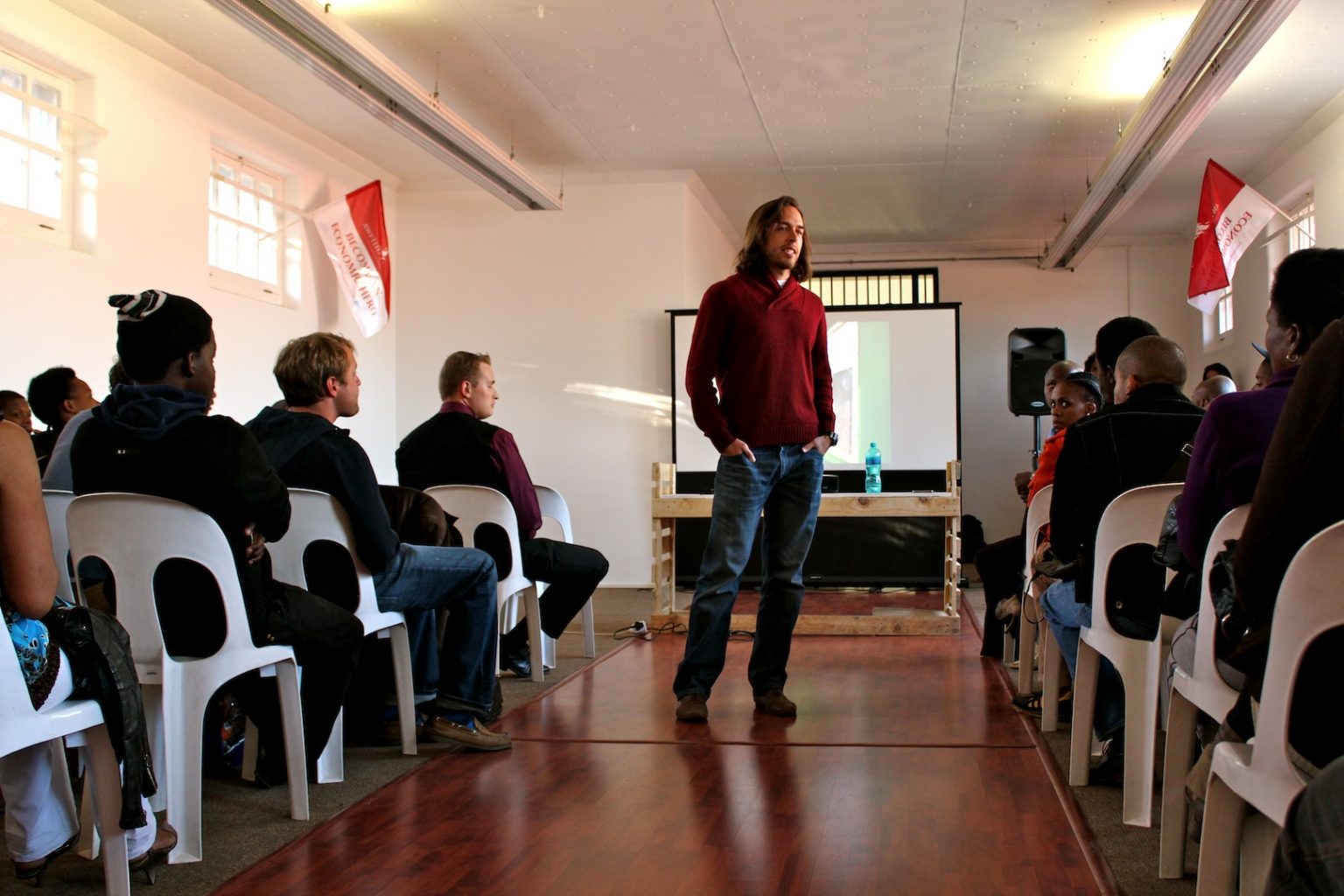Gauteng-based for-profit social business the Awethu Project is utilising partnerships with South Africa’s Jobs Fund and the Small Enterprise Finance Agency (SEFA) to incubate and invest in entrepreneurs in the province.
The Awethu Project runs six month incubator programmes for startups, funded by the Jobs Fund, and also recently partnered SEFA to launch a ZAR64 million (US$5.7 million) investment fund for selected startups. Since April, it has invested in 24 companies.
Gareth Taylor, shared services manager and incubation manager at the Awethu Project, told Disrupt Africa founder and chief executive officer (CEO) Yusuf Randera-Rees, a Rhodes scholar who studied at Harvard and Oxford, had returned to South Africa in 2010 determined to start a social business using a for-profit model to make a difference in South Africa through entrepreneurship.
“Our vision is to revolutionise South Africa’s economy using a for-profit model using entrepreneurs,” Taylor said. “It is possibly firstly to identify individuals who have the potential to run successful businesses.”
The project’s mission is “identify, incubate and invest”, with identified talented entrepreneurs funnelled into the Awethu incubator, which is supported by the Jobs Fund and has seen 512 entrepreneurs graduate so far.
“A lot of individuals in the townships don’t have a lot of role models to look up to, and see entrepreneurship as survivalist,” Taylor said. “The previous incubator programme was very informal, whereas now we’re trying to find individuals where we can bridge the informal-formal gap. We’re trying to identify those individuals who can.”
Applications are now open for a scaled-up version of the incubator, which will see entrepreneurs taken into the programme in January, April, October and April 2016.
The incubator begins with a four-week Launch Pad programme, which trains entrepreneurs to look critically at their business models.
“It acts as a training platform on what they need to do to look at their business critically. They come away with a business plan and pitch their business to us,” Taylor said.
Awethu charges ZAR500 (US$44) for Launch Pad, and the same again for each of the two stages of the six-month incubator. Taylor said the token fee was designed to make sure participating entrepreneurs were committed to the programme.
“The reason we have to charge is because in the past we found if there wasn’t a meeting of minds and it didn’t cost people would come for a free ride and there was a high attrition rate. This token free ensures individuals are more committed upfront,” he said.
Entrepreneurs are then effectively subsidised throughout the six-month incubator.
“In the last three months of the programme, we give the entrepreneurs a subsidy where we assist them in taking on their first employee,” Taylor said, adding this was designed to allow Awethu to help them through this difficult but important process. “If you’re at that stage and have brought in one or two bad hires it can destroy your business.”
He said: “Everything is experiential. What we want this to do is create successful businesses that can then go on and employ other people.”
The incubator serves as the primary talent pipeline for Awethu’s portfolio of businesses.
“We’ll be able to identify the entrepreneurs and businesses and be able to offer a place in the investment fund,” Taylor said, adding those that did not gain investment from Awethu would be assisted in finding it from elsewhere.
The SEFA Awethu Youth Fund (SAYF) is designed to invest in Awethu’s best entrepreneurs and ideas in order to develop high-impact entrepreneurs that can grow their businesses, create jobs and act as role models in their communities. The fund carries a seven-year investment term, and participating entrepreneurs will be overseen by a venture manager for the first two years until they are able to run the business and earn equity.
“We invest in our own scalable businesses. That could be our own startups, they could be acquisitions. In South Africa there are also companies that need to comply with certain BEE requirements, so we can go in with transformation deals,” Taylor said.
He said selected entrepreneurs did not necessarily need to have come up with the idea in order to be selected to run one of Awethu’s businesses.
“There are three main things in the business that need to come together, there’s the idea, there’s the capital and there’s the entrepreneur,” he said.
“We’ll bring you in and you can then learn the ropes with the view of taking over a leadership role in the business. That’s what really differentiates us from other private equity firms, in addition to the social mission.”
Taylor said Awethu was now getting started on raising future investment funds, approaching corporates over partnerships as well as banks in order to raise commercial funding.
The 24 businesses the project has invested in so far come from a number of different industries.
“It really is across the board, there’s not just one industry we focus on,” Taylor said, adding that though Awethu was focused specifically on Gauteng for the time being it planned to expand in the future, both across South Africa and the rest of the continent.
“We’re focused on Gauteng for the moment. We want to make sure we’re getting this right here at the moment,” he said.
“The goal is definitely for the fund to see returns, we want to be able to provide commercially viable returns. We’re also learning lessons about the type of business we want to invest in.”


